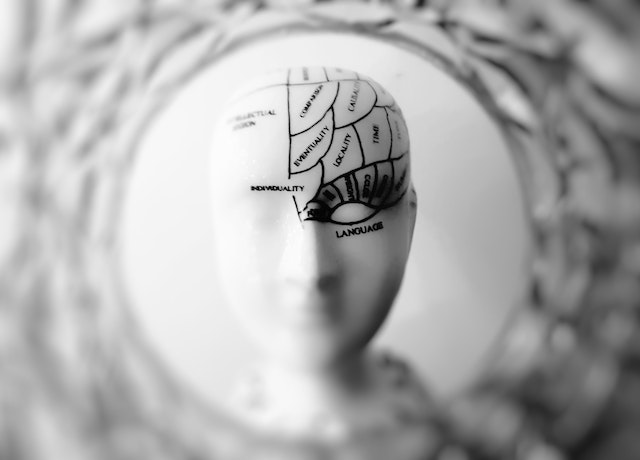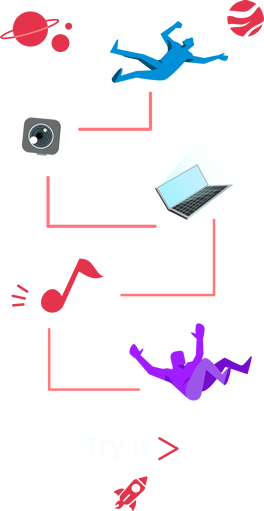The impact of music on language acquisition and learning

Table of content
The impact of music on language acquisition and learning - Introduction
Language acquisition and learning are essential for communication and are critical to one's personal and professional growth. It is not only a vital aspect of social interaction but also a tool for cognitive development.

In addition to having the ability to bring people together, music may significantly influence language learning and acquisition.
One may interact with a foreign language and learn more about its rhythm, intonation, and pronunciation through music.

The article will outline useful ways for introducing music into language learning as well as practical applications for employing music to promote language learning and acquisition.

It will also go into the difficulties and restrictions associated with utilizing music to help people learn languages, as well as make suggestions for future study.
People may improve their language abilities and forge closer bonds with others by realizing the advantages of music in language learning.
Theoretical background
Researchers have long examined the connection between music and language and have discovered many parallels between the two.
The same brain regions are used by both music and language, and both rely on sound to convey ideas. Fundamental elements like pitch, rhythm, melody, and intonation are shared by them.


Studies have also shown that listening to music can expand the connection and size of specific brain regions, notably those related to language processing.
Several studies have shown the significance of the relationship between music and language acquisition as well as the advantages of listening to music when learning a foreign language.
This is because it's possible that music might provide a setting that's engaging for learning and promote the development of phonological awareness, which is crucial for learning a language.
Moreover, music, particularly for young children, might help with vocabulary, grammatical development and social skills.

By taking advantage of the link between music and language and the beneficial effects of music on brain development, people may enhance their language learning and forge greater bonds with others.
Music and language acquisition in infants and young children
Particularly for newborns and young children, music is incredibly important for language development.
According to research, there are a lot of advantages to employing music to encourage language development in this age range.
The development of phonological skills is one of music's main advantages for language learning in newborns and young children.

Phonological awareness, which is the capacity to identify and control linguistic sounds, is a crucial aptitude for language learning.
By providing a rich auditory environment with a variety of sounds, rhythms, and melodies, music can aid in the development of phonological awareness in children.
According to studies, babies and young children who are exposed to music at a young age have more developed language abilities than those who are not.

Infants and young children who are learning a language may find it more entertaining and engaging if music is included in the activities.
Music and language learning in older children and adults

According to studies, adding music to language-learning programs can help students learn and remember new words and phrases.
Music's capacity to improve memory is among its most important benefits for language acquisition.

Moreover, music may be a helpful aid for learning a second language. Learners can enhance their listening comprehension and pronunciation by listening to songs in the target language.
Speaking abilities and accent development can both be enhanced by singing along to songs.

Also, music has the potential to be utilized in classrooms as a medium for language instruction. Students' learning experiences can be improved and made more interesting by incorporating music into language lessons.
Moreover, studies have found that kids who study music typically have stronger language abilities than their non-music-studying peers, indicating that music education can aid in language development.
Practical applications
The use of music to aid in language learning and acquisition has numerous real-world applications.
These are some methods for including music in language learning programs that teachers and students might use:
1. Play music in the target language: Songs in the target language can help with pronunciation and listening comprehension by delving into the lyrics and picking up new vocabulary terms and expressions.
2. Write your own songs to assist you in recalling vocabulary: Learners can increase their ability to remember and recall vocabulary terms by setting the words to a tune or rhythm.

3. Doing musical activities: Activities like karaoke, musical games, and rhythm drills can help learners learn more effectively and enjoyably. Also, these exercises help enhance linguistic abilities, including intonation, rhythm, and pronunciation.
4. Integrate music with other language-learning resources: To give a more comprehensive approach to language learning, music may be paired with other language-learning resources, including textbooks, audio recordings, and videos.

Challenges and limitations
While there are numerous advantages to using music as a medium for language learning and acquisition, there are also certain drawbacks and difficulties that must be overcome.

One drawback is that not all musical genres work equally well for language acquisition.
Research has demonstrated, for instance, that instrumental music can be more beneficial than lyrical music since words might interfere with language processing.
However, not all language learners may benefit from the use of music in language learning since some may find it challenging to incorporate music into language learning activities.
Another obstacle is how difficult it is to meaningfully and successfully include music into language learning programs.
The aims and objectives of their language learning program must be carefully considered by teachers and authors, as well as how music may best serve those goals.

To further understand how music may aid in language learning and acquisition, as well as to find the most efficient ways to use music in language learning programs, more study is required.
Music may be a potent instrument to help language acquisition and improve the learning experience for students of all ages when used with care and thought.
How CalypsoRoom fosters communication
People with diverse linguistic backgrounds may join together at CalypsoRoom and enjoy music together, simultaneously, connected by webcams, without being obliged to converse.

As a result, they can try to practice their language abilities without worrying that they won't know what to say even if they don't speak the same language.
As a result, in CalypsoRoom, a relaxed and inviting atmosphere is created where participants can concentrate on enjoying the music and the shared experience while also having the chance to improve their language abilities.
The impact of music on language acquisition and learning - Conclusion
Overall, this article indicates that music may be a useful tool for learning a language and connecting people of various linguistic origins.
The results of this study have important ramifications since they provide a fresh viewpoint on how music might help people learn languages and foster intercultural understanding.
Further study in this field is therefore required to fully examine the benefits of music in language acquisition and to create fresh, cutting-edge approaches to using music in language learning programs.
If you are willing to discover more about how powerful music is and how it influences our everyday lives, please refer to our blog section, where you can find many more articles on this topic.
Thanks for reading,
CalypsoRoom Team
Frequently Asked Questions
What is the relationship between music and language acquisition?
By activating the brain, enhancing memory, and making it easier to pick up pronunciation, intonation, and rhythm, music can help people learn languages more quickly.
How does music stimulate the brain for language acquisition?
The auditory cortex and prefrontal cortex, which are crucial for learning and processing language, are only two of the brain regions that music engages.
Can listening to music in a foreign language help with language learning?
Absolutely, learning a language may be aided by listening to music in the target language since it exposes students to new vocabulary, grammatical rules, and pronunciation techniques.
Can playing a musical instrument improve language learning?
Absolutely, mastering a musical instrument may help students learn a language better since it improves cognitive skills like memory, attention, and auditory processing.
Is there any research that supports the impact of music on language acquisition and learning?
Certainly, a number of studies have demonstrated a good relationship between music and language learning, especially for young learners and those learning a second language.
How can teachers or parents incorporate music into language learning?
Teachers and parents can use songs, rhymes, chants, or musical activities to teach vocabulary, grammar, and pronunciation while also incorporating music into language acquisition.
Are there any downsides to using music for language learning?
One drawback is that students could become overly dependent on music as a tool for learning and neglect to hone other crucial abilities like reading, writing, and critical thinking. Also, some students could find music ineffective for their learning style or distracting.
Can music be used to learn any language, or is it more effective for some languages than others?
Every language may be learned through music, although languages like Spanish, Italian, or French that have a long musical past may benefit from it more. Nevertheless, individual learning preferences and styles will determine how well music works for language acquisition.
Can listening to music in the background while studying help with language learning?
It varies from learner to learner. While some individuals find background music distracting, others find it helps them focus and reduce stress. Listening to music either before or after studying could be more productive.
Is it necessary to have a musical background or talent to use music for language learning?
No, you don't need to be musically inclined or talented to use music to learn a language. Everyone may learn a language and acquire it by listening to music.
back
Written by CalypsoRoom Editorial Team
The CalypsoRoom Editorial Team is a skilled and diverse group of writers, researchers, and industry specialists who have access to Calypso's data and information in order to give you broad knowledge about the music industry as well as helpful advice to help you manage your music and dancing career.
Updated March 2023
Company number: 681223
James's Walk 31, Dublin, Ireland
contact@calypsoroom.com
+353 (89) 435 8928




